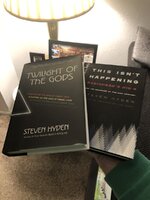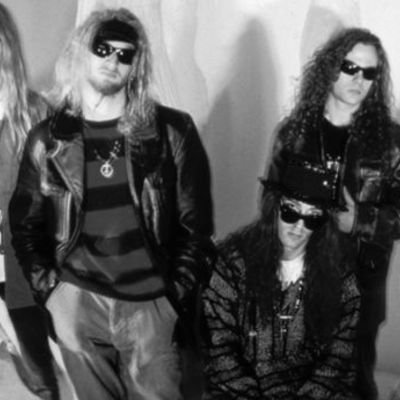I just started reading that Steven Hyden book “This Isn’t Happening” and maybe it gets better but so far it’s pretty cringey to me, and I’m not sure if I should keep going. It just feels like he kind of misses the point of what makes Radiohead special, at least, to me. Here are some highlights from the first chapter:
- He interrupts himself many times to quote italicized Kid A lyrics, like he’s telling you what they really mean. Ummmmmmm, yeah pretty sure they’re not meant to have meaning projected on to them by you, guy who didn’t write them. Like it’s fine to speculate, but don’t act like you’re any kind of authority on the meaning of Radiohead lyrics. Or that the lyrics are the point of Radiohead’s music.
- At one point, he states, “By the end of the aughts, Kid A will be regarded by many as the best album of the twenty-first century’s first decade”
- For one- dude, you already called the decade “the aughts” in that sentence - you don’t need to end the sentence by saying “the twenty-first century’s first decade.” Just say “that decade” - we’ll know what you’re talking about. He has this way of drawing things out to make it seem more grandiose and it’s just so unnecessary and annoying.
- He follows that sentence by citing as proof of Kid A’s cultural influence:
- The fact that Pretty Lights made a mashup song of “Everything in It’s Right Place” with NIN’s “Closer” and Nirvana’s “All Apologies”. OMG not a mash-up! Holy shit - those never happen unless a song is truly iconic and paradigm-shifting. Lol
- He then cites the fact that that same song (EIIRP) appeared in the trailer for the Ben Affleck movie “The Accountant” and he ends that sentence by stating that this confirmed “that Radiohead has ascended to ‘thinking-man’s Smash Mouth’ status.” Wha? Why? These comparisons are just upsettingly odd.
- And that’s it - those are the only pieces of evidence cited. Those are his cultural touchstones, apparently.
- He kicks off a rundown of each track on Kid A on the next two pages of the chapter with this sentence: “Let’s quickly recite the track listing for Kid A like bros quoting the Dude at a Big Lebowski convention.” Or how about we don’t - since bros at big lebowski conventions are fucking irrelevant. Seriously, is THAT the lens that you want to look through to analyze Radiohead’s Kid A ?
- The next few pages are all about him and his life and how Radiohead was, like, actually pretty influential for “63%” of his life. Cool story, bro. Super fascinating. Never heard of someone who thought Radiohead was super influential - glad you walked us through that.
Sorry, I just needed to vent. I hope it gets better. I can’t decide whether the issue is that I care too much about how people talk about this album or if he’s trying too hard to try to have an original take on an album that’s not exactly a hidden gem. I think at least part of my frustration is regret at spending $28 purchasing this book. To be fair, I don’t read many books about musicians or albums so maybe it’s just a hard thing to do and maybe he’s doing a better job than most here, but if that’s the case, that would just affirm that I shouldn’t waste my time with these kinds of books.


